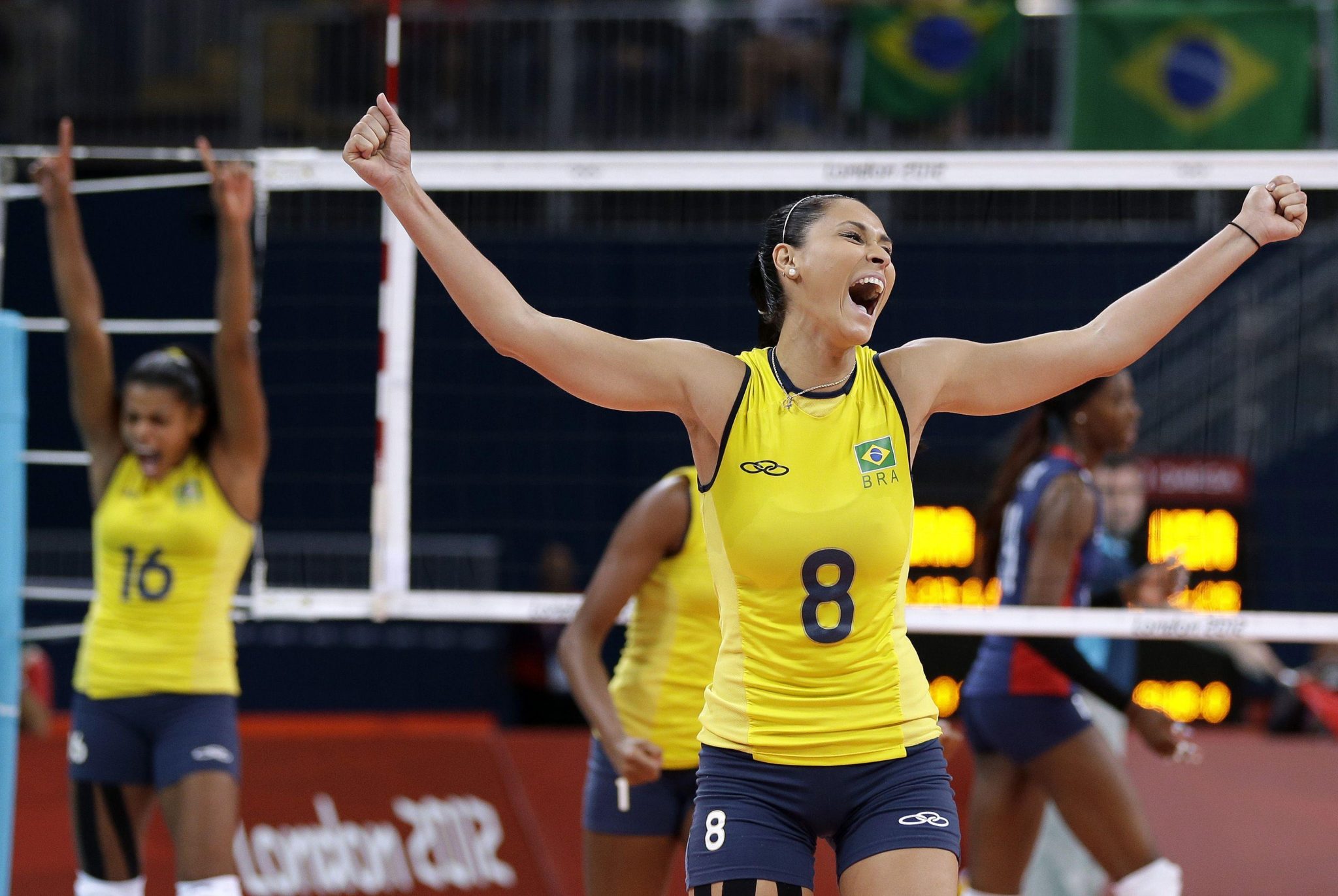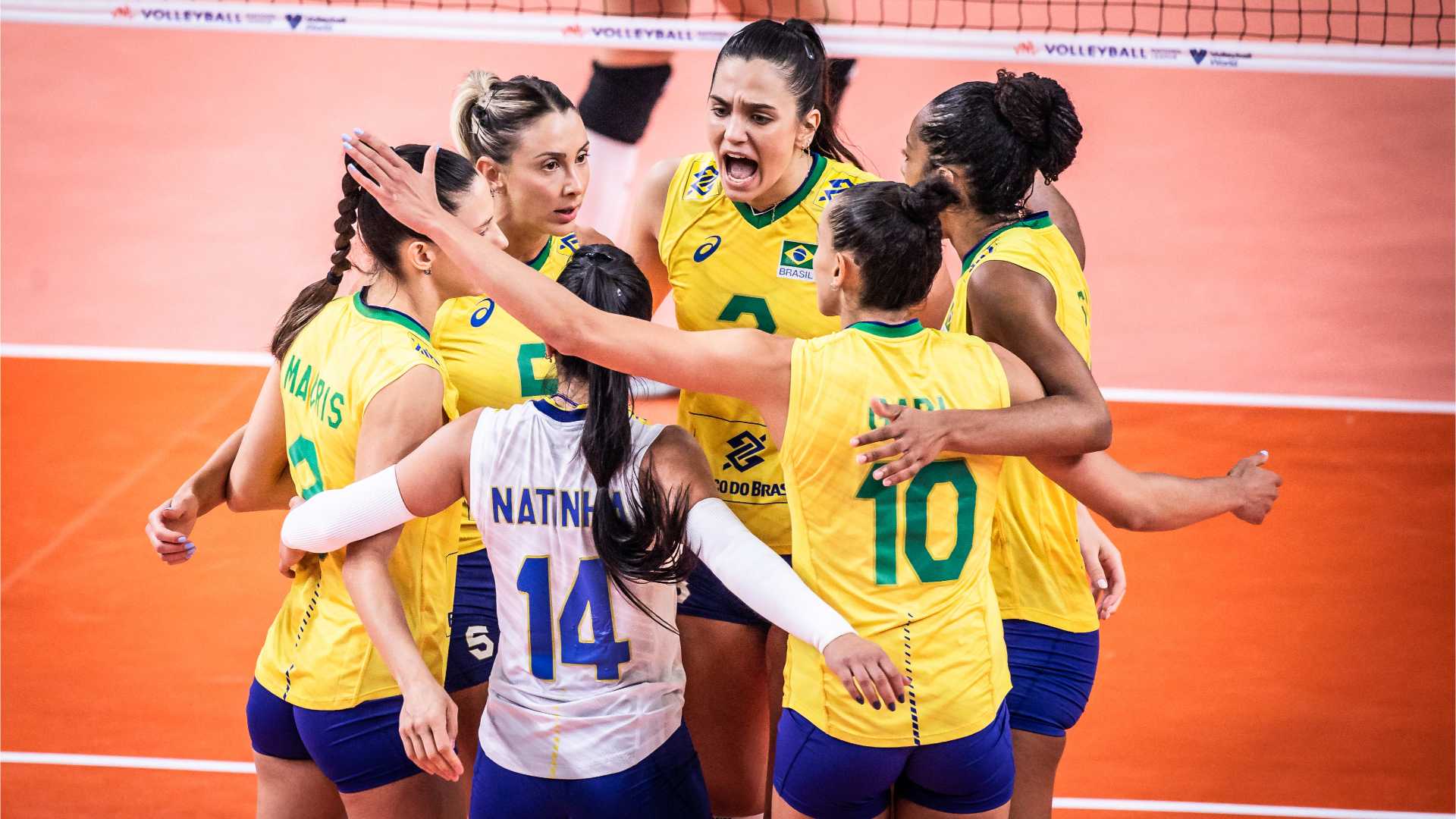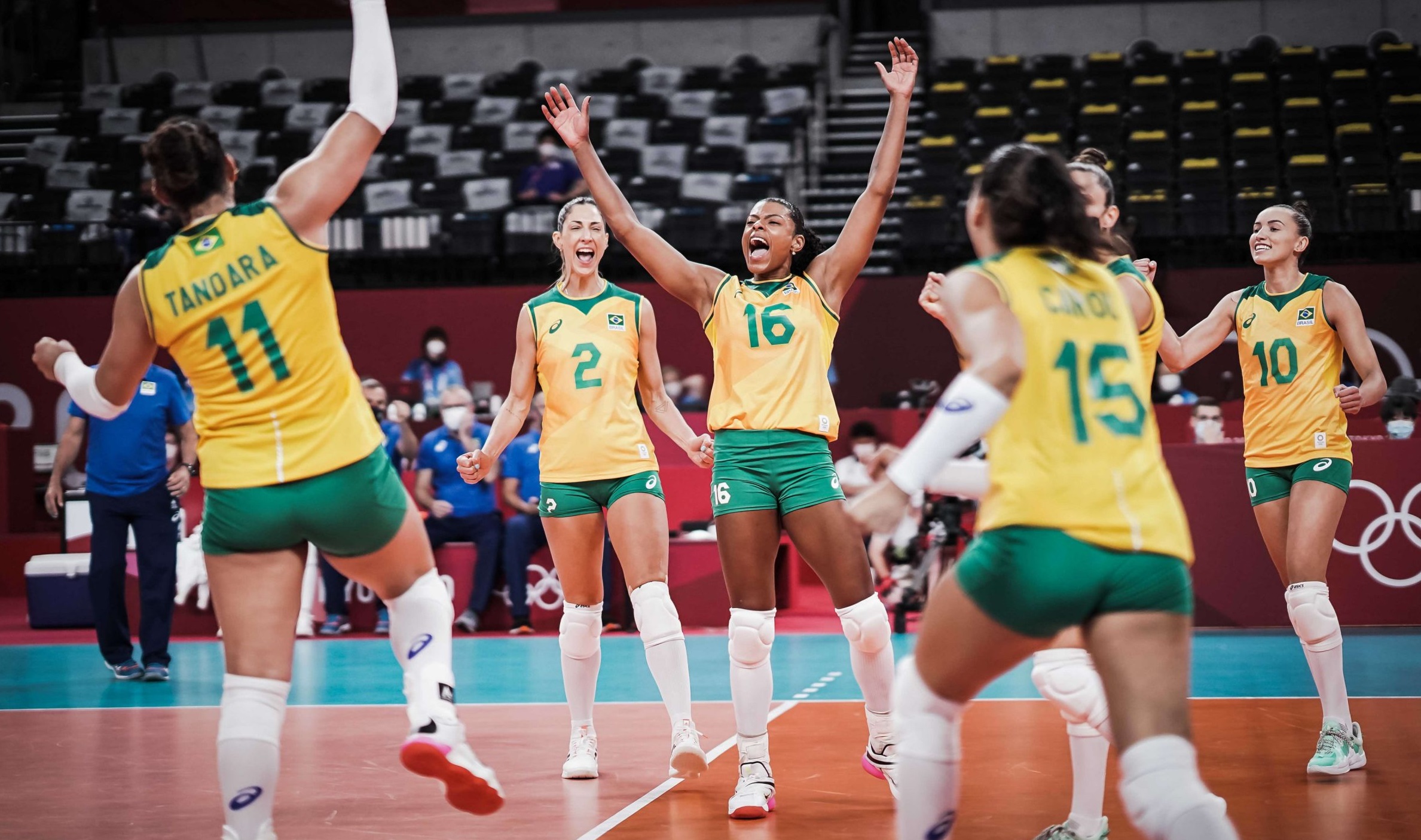History and Legacy: Brazil Women’s Volleyball

Brazilian women’s volleyball has a rich history marked by consistent success and a captivating playing style. From humble beginnings, the sport has evolved into a global powerhouse, captivating audiences with its athleticism, teamwork, and passion. This journey is intertwined with the contributions of legendary players, innovative coaches, and a dedicated fanbase that has propelled the sport to new heights.
Evolution of Brazilian Women’s Volleyball
The early years of Brazilian women’s volleyball were marked by a strong foundation built on dedication and a love for the sport. The first official women’s volleyball competition in Brazil was held in 1954, and the sport quickly gained popularity. In the 1970s, Brazil began to emerge as a force on the international stage, with the national team consistently achieving respectable results.
- The 1980s witnessed a significant turning point in Brazilian women’s volleyball. The team’s playing style evolved, becoming more aggressive and dynamic. This was largely attributed to the influence of coach Zoran Gajić, who introduced innovative tactics and training methods.
- The 1990s saw Brazil establish itself as a dominant force in women’s volleyball. The team’s iconic players, including Ana Moser and Fernanda Venturini, showcased exceptional skill and leadership, leading Brazil to numerous victories.
- The 2000s marked a new era of success for Brazilian women’s volleyball. The team, led by players like Sheilla Castro and Jaqueline Carvalho, dominated the international scene, winning multiple World Championships and Olympic medals. This period saw Brazil become synonymous with power, precision, and a captivating style of play.
Playing Styles of Past and Present Brazilian Teams
The playing style of Brazilian women’s volleyball has evolved over time, reflecting the changing dynamics of the sport and the emergence of new talent.
- In the past, Brazilian teams were known for their strong defense, aggressive blocking, and powerful attacks. They were particularly renowned for their fast-paced offense and ability to quickly transition from defense to attack.
- Present-day Brazilian teams continue to exhibit these strengths but have also incorporated a more sophisticated and tactical approach. They emphasize a more balanced style of play, with a focus on precision, teamwork, and adaptability.
Iconic Players and Their Contributions
Throughout its history, Brazilian women’s volleyball has been blessed with a wealth of talented players who have left an indelible mark on the sport.
- Ana Moser, a legendary figure in Brazilian volleyball, was renowned for her powerful attacks and exceptional leadership. She led Brazil to victory at the 1994 World Championship and was instrumental in establishing the team’s dominance on the international stage.
- Fernanda Venturini, another iconic player, was known for her exceptional setting skills and her ability to orchestrate the team’s offense. She was a key member of the Brazilian team that won the 2008 Olympic Games, cementing her legacy as a true legend of the sport.
- Sheilla Castro, a powerful attacker with exceptional athleticism, is considered one of the greatest volleyball players of all time. She led Brazil to numerous victories, including the 2012 Olympic Games, and her contributions to the sport have earned her widespread recognition and admiration.
Team Dynamics and Success

The Brazilian women’s volleyball team’s success is a testament to their strong team dynamics, which are built upon a foundation of individual talent, strategic coaching, and unwavering unity. This blend of elements has propelled the team to the pinnacle of international volleyball.
Roster Composition and Individual Strengths
The Brazilian team boasts a roster filled with world-class athletes, each contributing unique skills and strengths. Key players like Gabriela Guimarães, known for her powerful spikes, and Macris Marinho, renowned for her blocking prowess, exemplify the team’s offensive and defensive capabilities. The team’s success is further amplified by the contributions of experienced veterans like Fernanda Garay, who provide leadership and guidance to younger players. This mix of talent and experience creates a formidable force on the court.
Coaching Philosophy and Strategies
The Brazilian team’s success is also attributed to the strategic coaching philosophy implemented by José Roberto Guimarães. Coach Guimarães emphasizes a fast-paced, aggressive style of play, characterized by powerful serves, quick attacks, and a relentless defense. He utilizes a diverse range of offensive and defensive strategies, adapting his game plan based on the opponent’s strengths and weaknesses. This dynamic approach keeps opponents on their toes and allows the Brazilian team to exploit any vulnerabilities.
Team Unity and Resilience
Team unity and resilience are essential ingredients in the Brazilian team’s success. The players share a deep bond, fostering an atmosphere of trust and mutual support. This strong team spirit allows them to overcome challenges and setbacks, exhibiting remarkable resilience even in the face of adversity. Their ability to stay focused and work together as a unit is a defining characteristic of their success.
Impact and Influence

Brazilian women’s volleyball has left an undeniable mark on the global stage, influencing the sport in profound ways both on and off the court. Their success and style of play have inspired generations of players worldwide, while their commitment to excellence has helped to elevate the sport’s overall standard.
Impact on the Sport, Brazil women’s volleyball
Brazilian women’s volleyball has significantly impacted the sport’s global landscape. Their dominance has pushed other nations to raise their level of play, leading to increased competition and a higher overall standard. The Brazilian style of play, characterized by its fast-paced, attacking approach and strong defense, has become a benchmark for many teams.
- Increased Global Competition: The Brazilian team’s success has fueled a competitive fire in other nations, leading to a more diverse and challenging global landscape. The rise of teams like Serbia, China, and the United States can be partially attributed to the inspiration and pressure provided by Brazil’s dominance.
- Elevation of Standards: Brazil’s commitment to excellence has set a high bar for the sport, inspiring other nations to invest in training, coaching, and infrastructure. This has led to a noticeable improvement in the overall quality of play worldwide.
- Influence on Playing Style: The Brazilian style of play, characterized by its aggressive serving, fast-paced attacks, and strong defense, has become a model for many teams. This influence is evident in the tactics and strategies employed by teams around the globe.
Inspiration for Players and Nations
The achievements of Brazilian women’s volleyball have inspired countless players and nations. Their victories, individual brilliance, and team spirit have motivated athletes to pursue their dreams and push their limits.
- Role Models for Young Athletes: Players like Sheilla Castro, Fabiana Claudino, and Fernanda Garay have become icons for aspiring volleyball players around the world. Their athleticism, skill, and determination serve as a source of inspiration and motivation.
- Embracing the Sport: The success of Brazilian women’s volleyball has contributed to the growth of the sport in many nations. The team’s captivating style of play and consistent victories have drawn in fans and inspired young athletes to pick up a volleyball.
- Enhancing National Programs: The achievements of the Brazilian team have motivated national federations and governments to invest more resources in developing their own programs. This has led to improved infrastructure, coaching, and talent development, ultimately strengthening the sport at a national level.
Promoting Gender Equality and Female Empowerment
Brazilian women’s volleyball has played a significant role in promoting gender equality and female empowerment. The team’s success has challenged traditional gender roles and demonstrated the potential of women in sports.
- Breaking Barriers: The team’s achievements have shattered stereotypes and shown that women can compete at the highest level in traditionally male-dominated sports. They have proven that women can be strong, athletic, and successful in sports, inspiring young girls to pursue their dreams.
- Inspiring Young Women: The Brazilian team’s success has served as a powerful message for young women around the world, demonstrating that they can achieve their goals and overcome any obstacle. Their journey has inspired countless girls to pursue their passions, both in sports and in life.
- Positive Role Models: The Brazilian women’s volleyball team has become a symbol of female empowerment and athletic excellence. They have shown that women can be role models for younger generations, inspiring them to strive for greatness and embrace their full potential.
Brazil women’s volleyball – Aduih, mamak, kito nan cubo lah maco-maco tonton bola voli wanito Brazil, nan si agak kuat nan. Tapi, lah, sambil tu, minum lah dulu minuman nan dingin, macam kenny chesney blue chair drink tu. Pasti lah sedap nan, cocok lah jo nonton bola voli.
Nah, lah, kito nan saksikan lah bareng-bareng, sambil ngobrol-ngobrol, nyaman lah, lah!
Mandeh, the Brazilian women’s volleyball team is a force to be reckoned with! Their skill and passion are inspiring, and watching them play is a treat. Speaking of passion, have you seen the vibrant blue upholstery fabrics available these days?
Blue chair upholstery fabric can add a touch of excitement to any room, just like the Brazilian women’s volleyball team brings excitement to the court!
